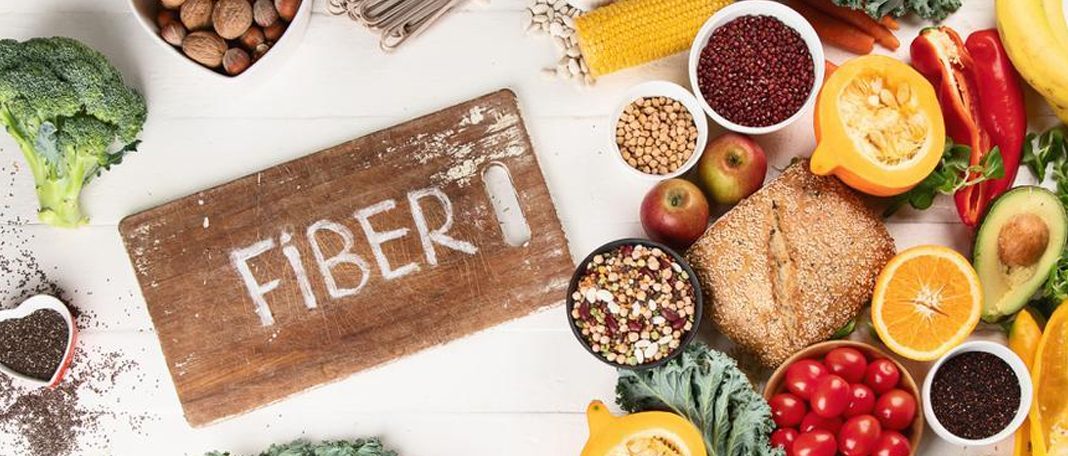Fiber plays a major role in keeping the digestive system healthy. Adequate fiber intake can reduce the risk of heart disease, stroke, type 2 diabetes, and bowel cancer. Fiber also helps you have more beneficial gut bacteria, improving cholesterol and blood sugar levels. Fiber has been used as a dietary aid since ancient times.
What Is Fiber?
Dietary fiber is a plant-based non-digestible carbohydrate. Fiber isn’t digested in your body. It passes through your stomach, small intestine, and colon and comes out of your body. Fiber contains parts of plant foods such as vegetables, fruits, grains, and legumes.
Add Fiber to Your Diet for Healthy Living.
Fiber is classified into two different types based on its water solubility. Each have a different function and play important roles in health
Soluble fiber– Soluble fiber is easily dissolved in water or gastrointestinal fluids when entered into the stomach it breaks down into a gel-like substance in the colon. This helps in slowing down your emptying process and makes your stomach feel fuller.
Soluble fiber is found in oats, peas, apples, citrus fruits, barley, legumes, and carrots.
Insoluble fiber– Insoluble fiber does not dissolve in water or gastrointestinal fluids. As it is not digested it moves through your digestive system. It helps people who struggle with constipation or irregular stool.
Insoluble fiber is found in whole-grain bread, flour, nuts, beans, cauliflower, and potatoes.
How Much Fiber Do You Need Each Day?
Ensure you’re eating a limited amount of fiber. Eating a lot of fiber can cause gas, bloating, diarrhea, and abdominal cramps. If you’re new to this process, gradually add fiber to your diet don’t add a higher level of fiber all at once. Make sure to take plenty of fluids if you’re eating a lot of fiber- 16 ounces of water, four times a day is recommended. The water you drink helps fiber to move faster and easier through your digestive system and avoid stomach distress.
Recommended Fiber Intake
The American Heart Association (AHA) recommends eating a variety of fiber-rich foods. The dietary intake should be 25 to 30 grams of fiber per food not from supplements. The average person in the United States currently consumes about 15 grams of fiber a day that is half the recommended.
Simple tips to add more fiber to your diet
Choose natural fiber-rich foods over supplements. Include this food in your daily diet to increase fiber intake
- Take fruits and vegetables with every meal
- Take nuts and seeds as snacks
- Eat wholemeal or seeded wholegrain breads
- Eat potatoes with skins/ try to consume all fruits and vegetables with their skin.
- Include plenty of vegetables
- Pick unrefined grain and cereal products
- Choose brown rice over white rice
- Add more pulses to your diet
- Prefer a high-fiber breakfast.
- Most importantly, try to eat beans, peas, or lentils daily
















